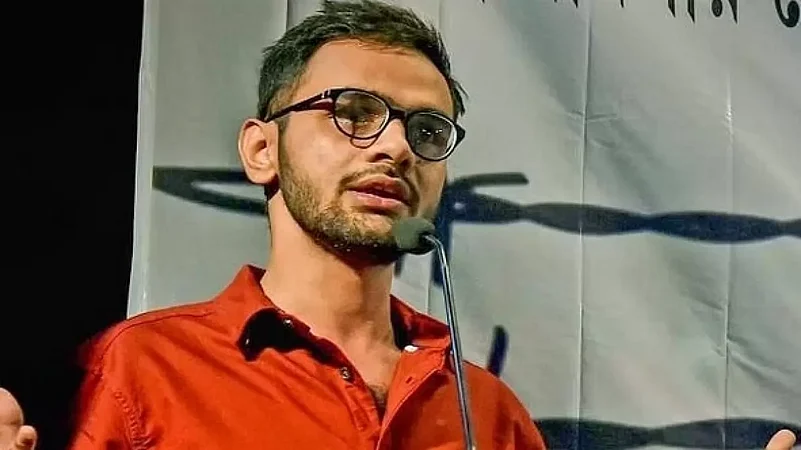The bail plea of Jawahar Lal University student Umar Khalid will be heard by the Supreme Court on July 24. Khalid was arrested for an Unlawful Activities (Prevention) Act case related to the Delhi riots that happened in 2020.
On Monday the Delhi Police sought time to respond to the petition during the hearing before a bench of Justices A S Bopanna and M M Sundresh.
Advocate Rajat Nair is appearing for the Delhi Police who requested the bench to grant them some 'reasonable time' to file a counter affidavit regarding the matter, stating that the chargesheet is voluminous and that it runs into thousand pages.
The bench in its observation said, "It should have been ready today" as they posted the matter for July 24.
Senior Advocate Kapil Sibal who is representing Umar Khalid, said, "In a bail matter, what counter is to be filed. The man is inside for two years and 10 months."
The apex court sought for Delhi Police's response to Khalid's plea on May 18 as he challenged the Delhi High Court order of refusing him bail in the case.
The Delhi High Court on October 18, 2022, rejected Umar Khalid's bail plea stating that he was in touch with the co-accused in the case and according to the initial observation of the allegations against him were true.
Why was Umar Khalid arrested?
Khalid, Sharjeel Imam, and several others have been booked under the anti-terror law Unlawful Activities (Prevention) Act (UAPA) and provisions of the Indian Penal Code for allegedly being the "masterminds" of the February 2020 riots, which left 53 people dead and over 700 injured.
The high court had also said the actions of the accused prima facie qualified as a "terrorist act" under the anti-terror law UAPA.
The violence had erupted during the protests against the Citizenship (Amendment) Act and the National Register of Citizens.
Khalid, arrested by the Delhi Police in September 2020, had sought bail on grounds that he neither had any criminal role in the violence nor any "conspiratorial connect" with any other accused in the case.
Before the high court, the Delhi Police had opposed the bail plea by Khalid, saying the speech delivered by him was “very calculated” and brought up issues like Babri Masjid, triple talaq, Kashmir, the alleged suppression of Muslims and the Citizenship (Amendment) Act (CAA) and National Register of Citizens (NRC).


























